45 food labels and diabetes
Reading food labels: Tips if you have diabetes - Mayo Clinic Look for foods with 3 or more grams of fiber. Put sugar-free products in their place Sugar-free doesn't mean carbohydrate-free. Sugar-free foods may play a role in your diabetes diet, but remember that it's equally important to consider carbohydrates as well. A sugar-free label means that one serving has less than 0.5 grams of sugar. Food Labels 101 | Diabète Québec Adapted from the Canadian Diabetes Association table: Understanding the nutrition label. Ingredient list. The ingredient list shows all the ingredients in a packaged food and is crucial when you have food allergies or intolerances. The list completes the Nutrition Facts table because it indicates the source of the various nutrients.
Making Sense of Food Labels | ADA - American Diabetes Association As of January 2021, labels must include added sugar to help you know the difference between sugar that occurs naturally in the food (like yogurt or fruit) and sugar that was added during processing (like in cookies, candy and soda). Many labels have already made the change. Learn more about sugar and the three main types of carbohydrates.
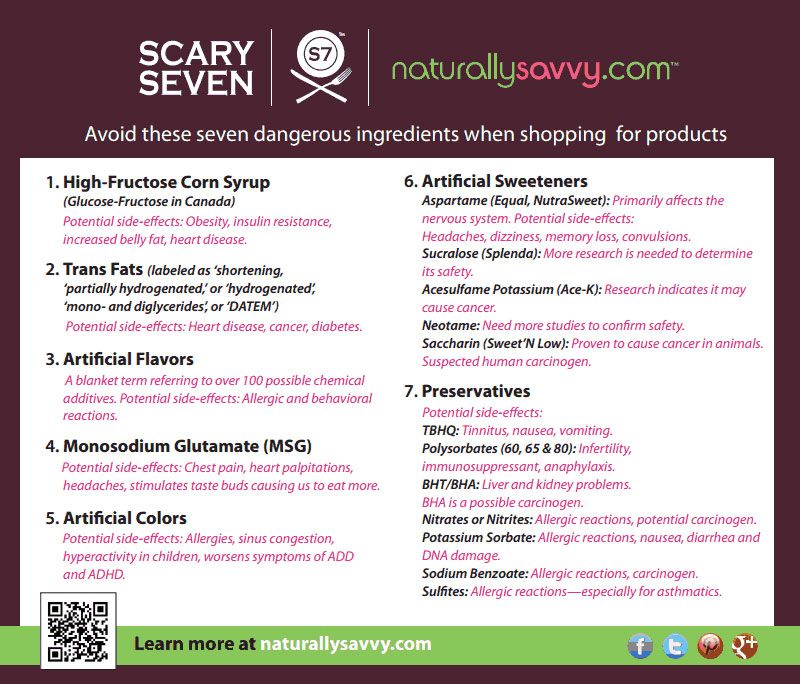
Food labels and diabetes
Reading food labels: Tips if you have diabetes - Drugs.com Nutrients and Daily Value: The label must list the amounts of total fat, saturated fat, trans fat, cholesterol, sodium, total carbohydrate, dietary fiber, sugars, protein, vitamin D, calcium, iron and potassium that are in one serving. The Daily Value (DV) tells you how close you are to meeting your daily requirements for each nutrient. PDF Label reading basics for diabetes - Veterans Affairs Label Reading Basics for Diabetes Nutrition and Food Services (05/2020) Serving Size • The serving size is the portion size used for all the values on the label. • Different foods have different serving sizes. • The serving size on this label is 2/3 cup. Servings per Container • Indicates the number of Reading Food Labels When You Have Diabetes - WebMD Food labels can help you make better decisions about what you eat and how you manage your diabetes. Just about every packaged food made in the U.S. has a "Nutrition Facts" label that gives a ...
Food labels and diabetes. Reading labels | Diabetes UK Key points. Always look at the 'total carbohydrate' on the label when carb counting. This will make sure you are counting both the complex (starchy) and simple (sugary) carbs in your food. Both will raise your blood glucose (blood sugar) levels, and need to be matched with insulin. In general, sugar-free options like diet drinks and jellies ... Recipes & Nutrition | ADA - American Diabetes Association As you’ll see on the nutrition labels for the food you buy, the term “total carbohydrate” refers to all three of these types. When it comes to choosing foods with carbs, the goal is to choose carbs that are nutrient-dense, which means they are rich in fiber, vitamins and minerals, and low in added sugars, sodium and unhealthy fats. Food Labels | CDC - Centers for Disease Control and Prevention If you eat the whole thing, you are eating 8 times the amount of calories, carbs, fat, etc., shown on the label. Total Carbohydrate shows you types of carbs in the food, including sugar and fiber. Choose foods with more fiber, vitamins, and minerals. Choose foods with lower calories, saturated fat, sodium, and added sugars. Avoid trans fat. 4 Things Diabetics Should Always Look for on Food Labels Reading food labels is a no-brainer. And, it's important for diabetes management. So, check out these 4 things diabetics should look for on food labels. 1. Carbs. Carbs can wreak havoc on the blood sugar. However, food labels often list "total carbohydrates." And that makes it difficult to determine exactly which carbs are included.
Reading Food Labels to manage Diabetes - Making Diabetes Easier When reading the label of food packaging, it's helpful to also be mindful of the salt content and fatty acids. Eaten in large quantities, salt causes hypertension and kidney complications and fatty acids can lead to cardiovascular problems. It can also be helpful for people with type 2 diabetes to keep track of overall calorie intake because ... PDF Label Reading Basics for Diabetes - Veterans Affairs This food has 300 mg of sodium per ½ cup serving. It is suggested to limit salt intake to 1500 mg per day when you have diabetes. With pre-diabetes, your sodium intake should still be monitored. The goal is less than 2300 mg per day. A good first step is to not have a salt shaker at home. Total Fat The area on the label describing Understanding food labels | Diabetes UK The labels show how many calories are in the food or drink and are also colour coded to show whether the food is low (green), medium (amber) or high (red) in fat, saturated fat, sugar and salt. The information on the front of the pack also tells you how the portion of the food contributes to the Reference Intake (RI) of an adult. Gestational diabetes diet | What can I eat | Diabetes UK Understanding your diet and eating healthily is an important part of your treatment for gestational diabetes. It will help you keep your blood sugar levels in the safe range so you’re more likely to enjoy a healthy pregnancy and give birth to a healthy baby. If you are diagnosed with gestational diabetes you should be referred to a dietitian for individual advice. If this has not happened ...
Nutrition Facts Labels and Diabetes - University of Rochester You can find low-sodium versions of cheeses, deli meats, soups, bread, crackers, and nuts. Go low cholesterol. And many foods are naturally low in cholesterol or have no cholesterol. Foods from plants have no cholesterol—and they have the dietary fiber you need. Look for low-fat and healthy fats. Understanding food labels - Diabetes Ireland Sometimes the producer claims on the pack that a food is for example 'Low in fat', 'High fibre' or a 'Source of calcium'. Recent EU legislation has regulated the use of nutrition and health claims in order to protect the consumer against. For more information on understanding food labels and diabetes, download our Food Labels booklet. Decoding Diabetes: How to Read Nutrition Labels | Accu-Chek It is listed out separately from total carbs to help anybody seeking to limit sugar, like people with diabetes, find foods that fit their diets. • Additional Sugar: Finally, some newer food labels may have an additional line under Sugar that lists anything that was added beyond the natural sugars contained in the other ingredients in the food. Diabetes Food Label Reading: Quick Tips to Shop Smarter Stick to products that contain a maximum of 10 ingredients, 5 is even better. It's also good to understand that anything labeled "sugar free" can technically still have up to 0.5 grams of sugar per serving, so it's not always as straightforward as it seems. "Sugar free" and "no added sugar" does not mean carb free.
Reading food labels & nutrition panel - Diabetes Queensland Reading food labels When choosing packaged food, choose products with: lower energy (kilojoules) if you are trying to lose weight lower total and saturated fat lower sugar lower sodium higher fibre Every food label tells a story and the Nutrition Information Panel simply gives you the facts.
Reading Food Labels When You Have Diabetes | HealthLink BC Saturated fat and trans fat are listed on the food label. The lower the number of grams, the better. Limit how much saturated and trans fat you eat. A food is considered low in saturated fat if it has 5% or less of the daily value. A food is considered high in saturated fat if it has 15% or more of the daily value.
Reading Food Labels | ADA - American Diabetes Association The Nutrition Facts labels on foods are really the key to making the best choices. We'll cover the basics so that these labels make shopping easier for you. Get started Understanding Carbs You've heard it all. From carb-free to low-carb, to whole and empty carbs, it's hard to know what it all means. Learn more Food & Blood Sugar
Understanding food labels fact sheet - NDSS Labels on packaged foods provide information that can help you make healthier food choices. Making healthy food choices can help you to manage your diabetes, weight, and overall health. Understanding how to read food labels can help you choose foods with more fibre and less saturated fat, salt (sodium), added sugars and kilojoules.
Food Labels | Know Diabetes If this is the case the label should say 'contains naturally occurring sugars'. Low-sugar The product must contain less than 5 g of sugar per 100 g, or 2.5 g of sugar per 100 ml. Reduced-sugar The product must contain 30% less sugar than the standard equivalent product. This does not mean the product is always low in sugar. Sugar-free
Learning To Read Labels :: Diabetes Education Online On a nutrition food label, subtract the fiber from the total carbohydrate amount. When you read food labels, the grams of sugar are already included in the total carbohydrate amount, so you do not need to count this sugar amount separately. The grams of sugar listed include both natural sugars, from fruit or milk, and added sugars.
How to Read Food Labels When You Are Diabetic - Diabetics Weekly This is the most important aspect of how to read food labels when you have diabetes. The total amount of carbohydrates breaks down into complex carbohydrates, sugar, and fiber. Don't hone in on zero-sugar foods, as foods like milk and fruit contain natural sugars. By the same token, make sure to watch out for foods extremely high in carbohydrates.
Food Label Know How | American Diabetes Association Food Label Know How. Plan Your Plate . Sugar Substitutes . Grupos de Alimentos y Tamaños de las Porciones. Formas Saludables de Cocinar y Sazonar los Alimentos. Compras en el Supermercado. Como Leer las Etiquetas de los Alimentos. Planifique su Plato Saludable. Sustitutos del Azúcar. American Diabetes Association 2451 Crystal Drive, Suite 900 ...
Quick Meal Ideas | ADA - American Diabetes Association Reading Food Labels; Vitamins & Diabetes; Behavior Change & Weight Loss . ... American Diabetes Association. 2451 Crystal Drive, Suite 900 Arlington, VA 22202.
Nutrition Facts Labels and Diabetes - University of California, San Diego You can find low-sodium versions of cheeses, deli meats, soups, bread, crackers, and nuts. Go low cholesterol. And many foods are naturally low in cholesterol or have no cholesterol. Foods from plants have no cholesterol—and they have the dietary fiber you need. Look for low-fat and healthy fats.
Study Reveals Importance of Food Labels in Fight Against Diabetes "This randomized controlled study is the first ever published showing the major role that food label education plays at helping low-income individuals in the United States manage their type 2 diabetes," said Professor Rafael Pérez-Escamilla, Ph.D., a co-author of the study.
Diabetes Food Hub From the nutrition experts at the American Diabetes Association, Diabetes Food Hub® is the premier food and cooking destination for people living with diabetes and their families. 2451 Crystal Drive, Suite 900, Arlington, VA 22202 1-800-DIABETES 1-800-342-2383
Diabetes and Food Labelling - Diabetic Food, Traffic Light Labels and GDA Food labelling plays a useful part in diabetes management and following a healthy lifestyle. There is a lot of information to be found on food packaging, so it helps to know which of the information is best to focus on. Making sense of food labels The most important information is usually found on the back of packaging.
PDF What Can I eat? - American Diabetes Association list of everything that is in the food. They are listed by the highest amount to the least. If the first word in the list is sugar, then there is more sugar in the food than anything else. Reading Food Labels Food labels can help you choose what foods to eat. Use the labels at right to find the best choice. 1-800-DIABETES (1-800-342-2383) www ...
Reading Food Labels When You Have Diabetes - WebMD Food labels can help you make better decisions about what you eat and how you manage your diabetes. Just about every packaged food made in the U.S. has a "Nutrition Facts" label that gives a ...
PDF Label reading basics for diabetes - Veterans Affairs Label Reading Basics for Diabetes Nutrition and Food Services (05/2020) Serving Size • The serving size is the portion size used for all the values on the label. • Different foods have different serving sizes. • The serving size on this label is 2/3 cup. Servings per Container • Indicates the number of
Reading food labels: Tips if you have diabetes - Drugs.com Nutrients and Daily Value: The label must list the amounts of total fat, saturated fat, trans fat, cholesterol, sodium, total carbohydrate, dietary fiber, sugars, protein, vitamin D, calcium, iron and potassium that are in one serving. The Daily Value (DV) tells you how close you are to meeting your daily requirements for each nutrient.


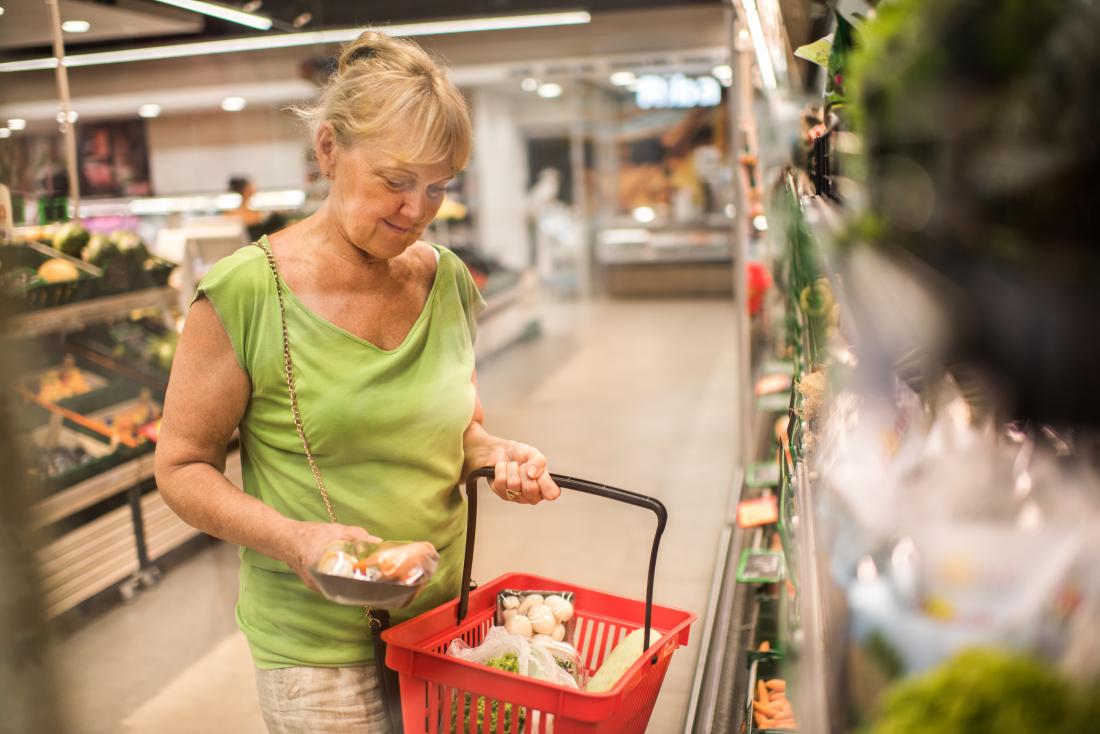
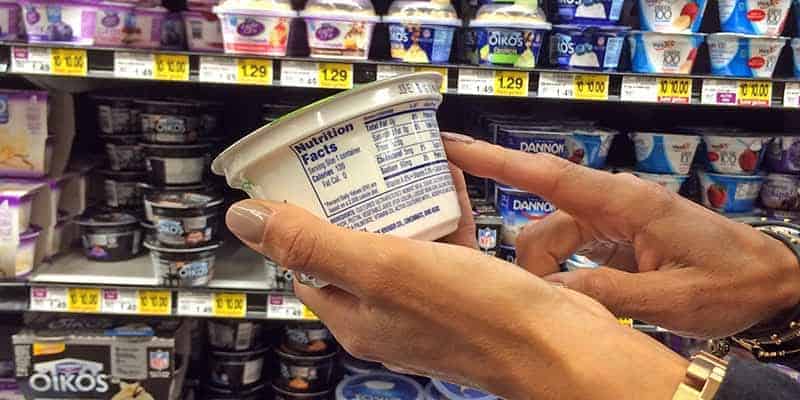
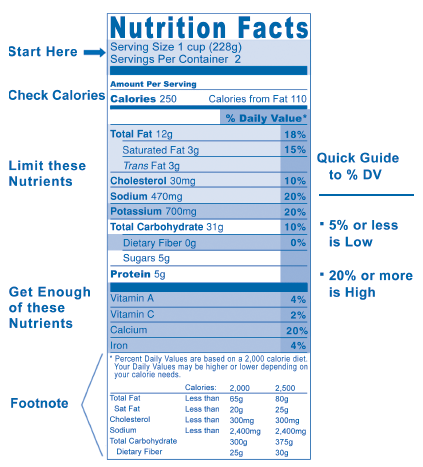
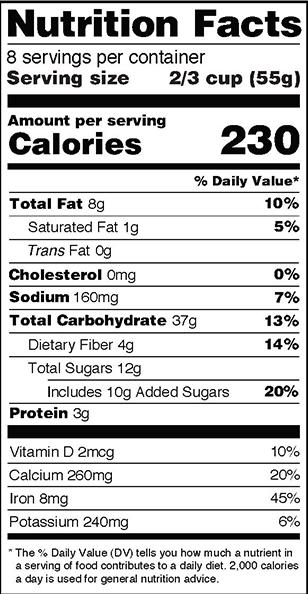
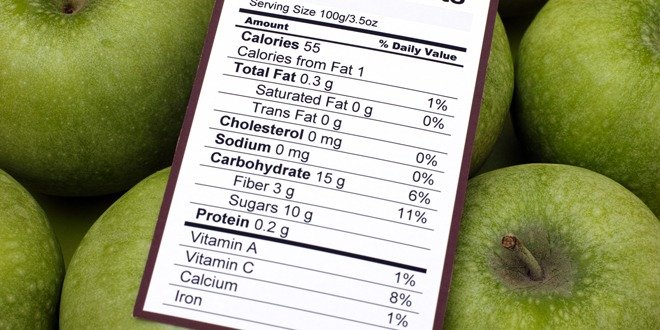



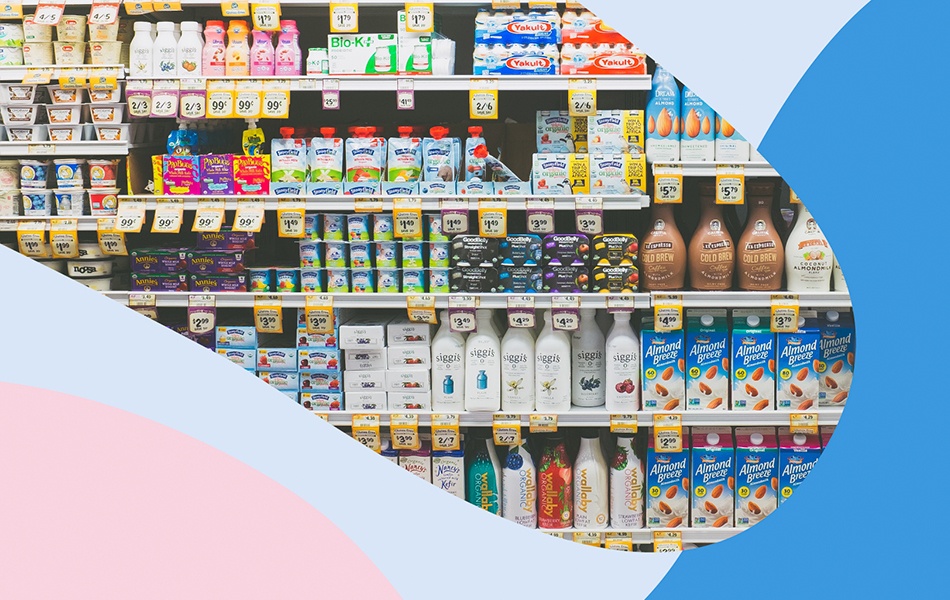

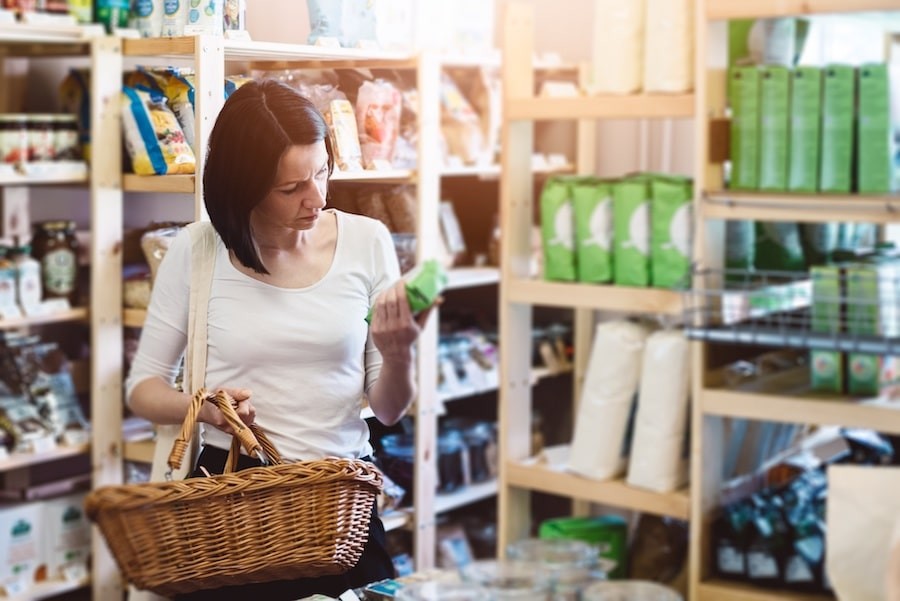
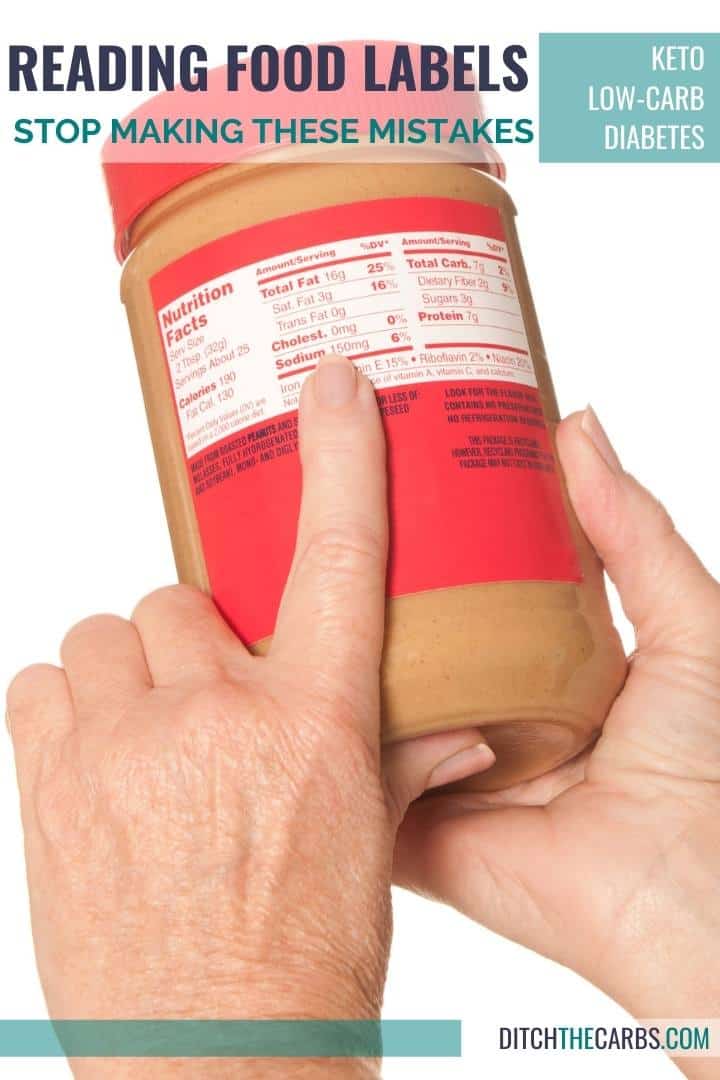
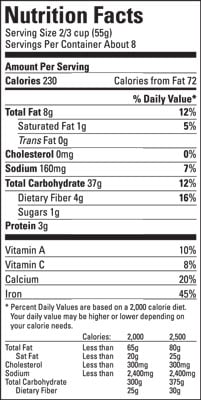
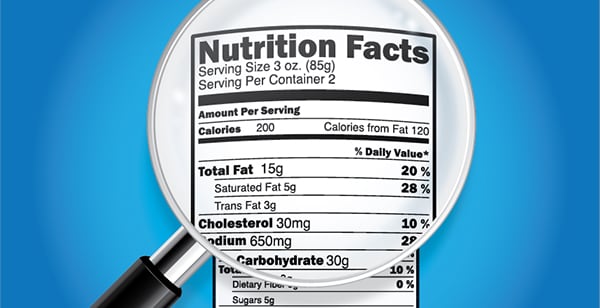
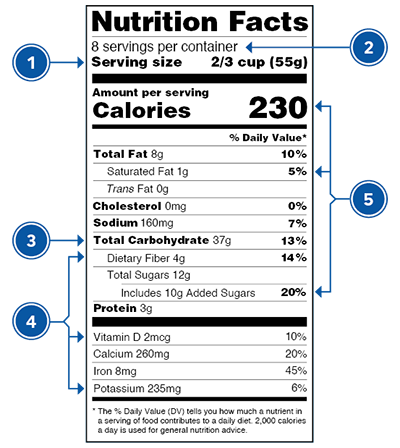

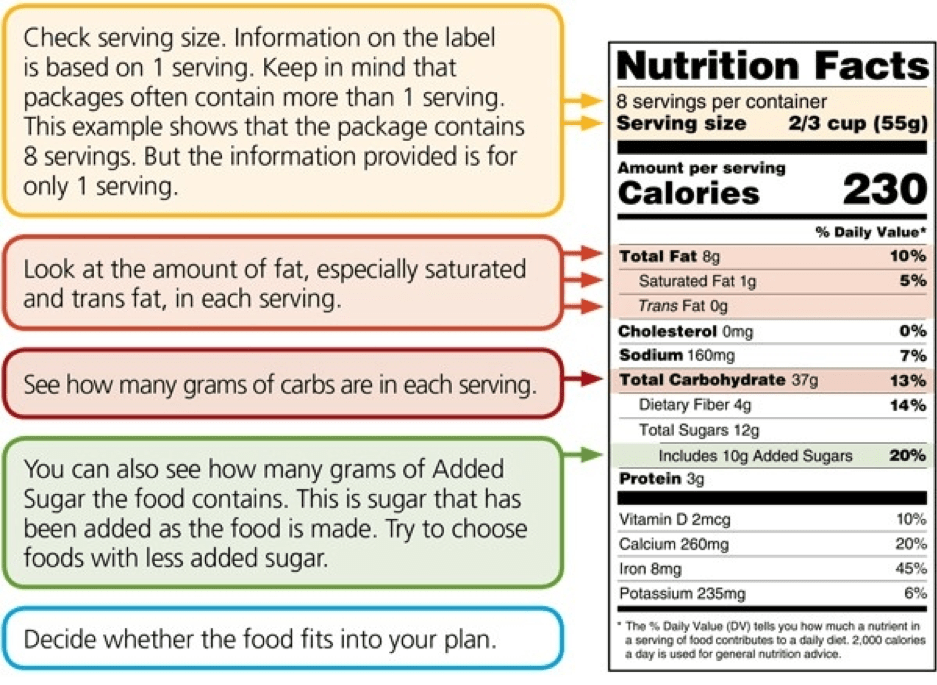
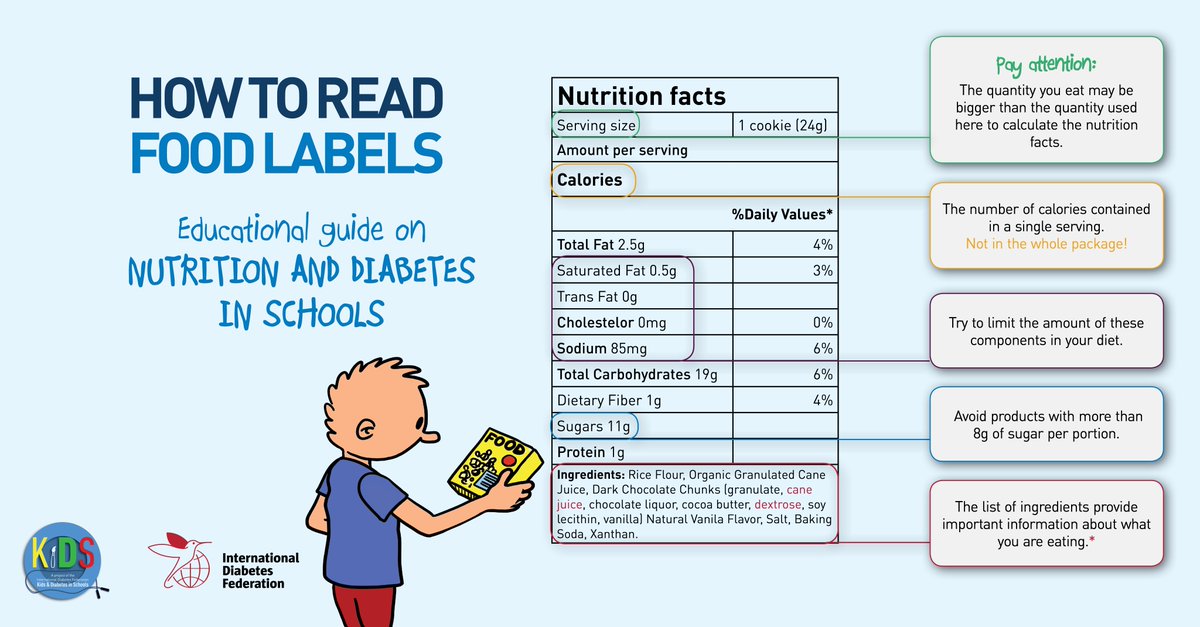
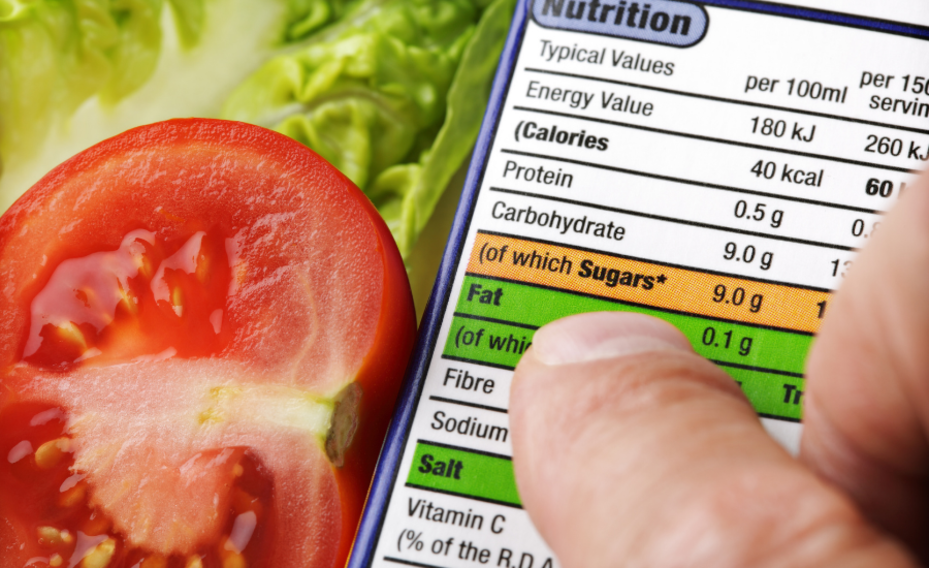


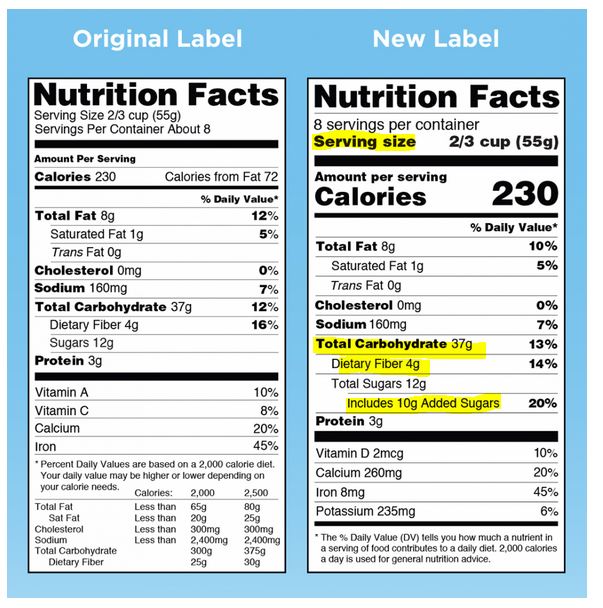


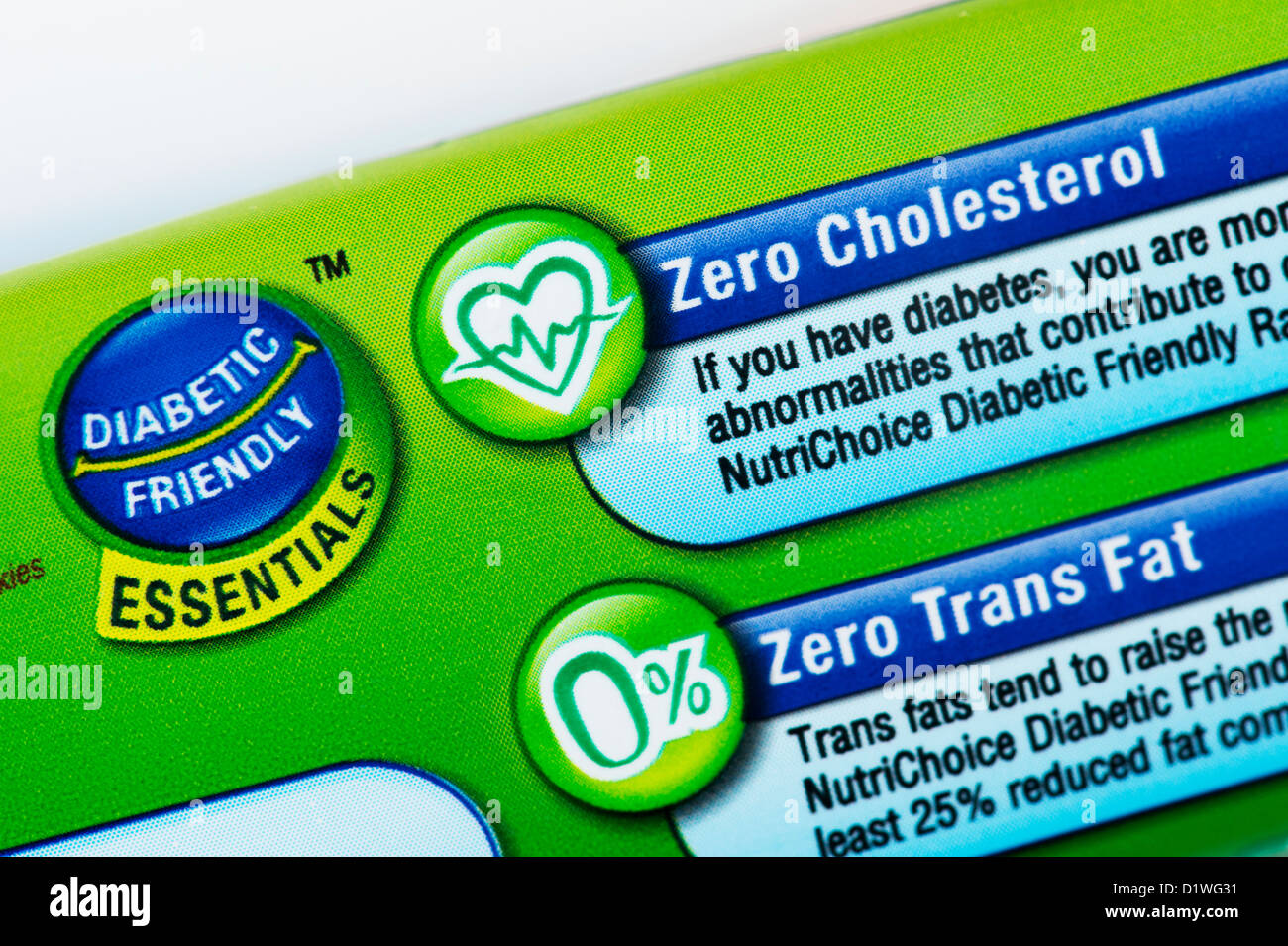
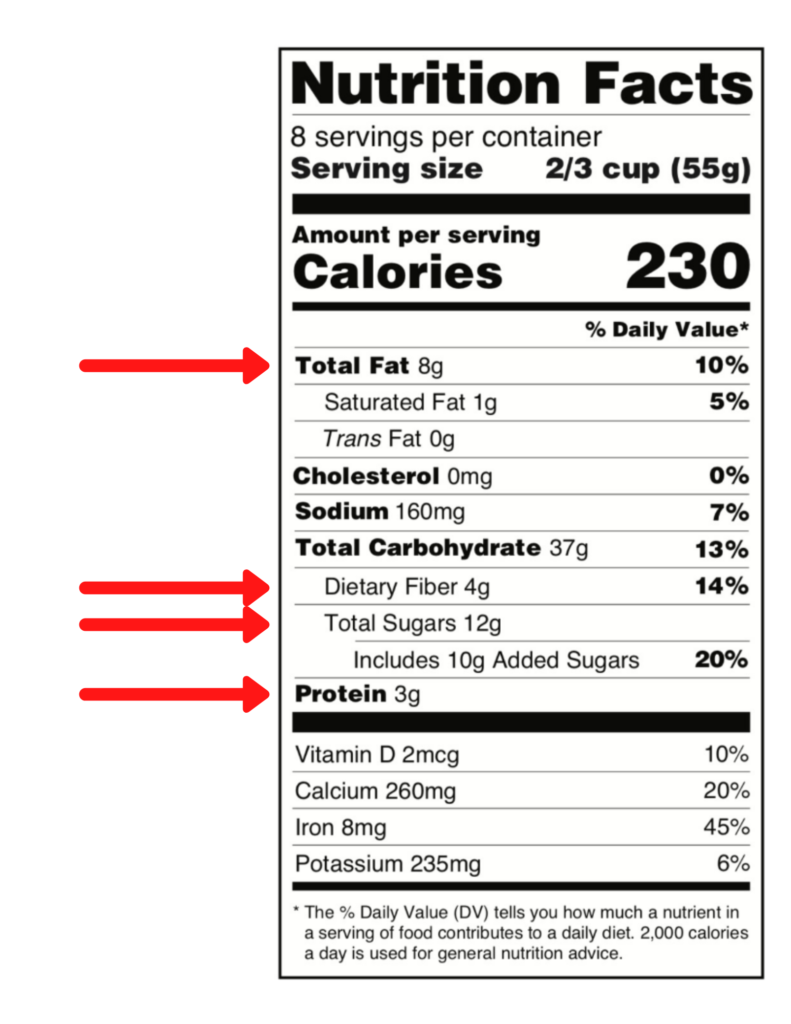


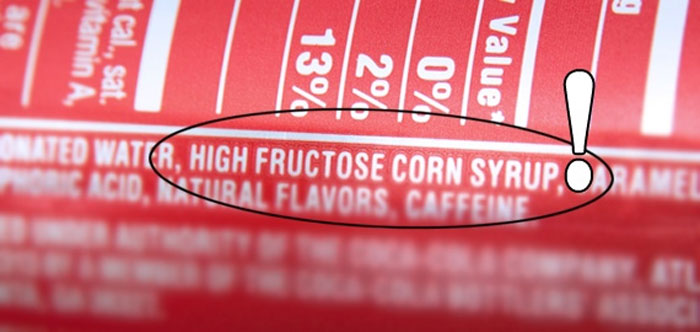

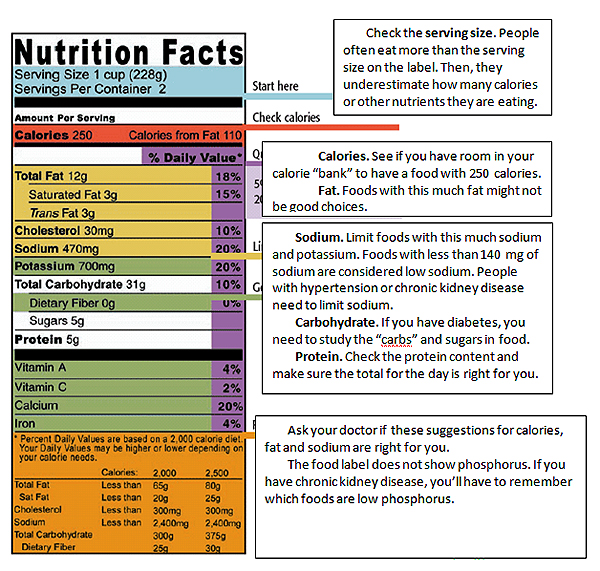

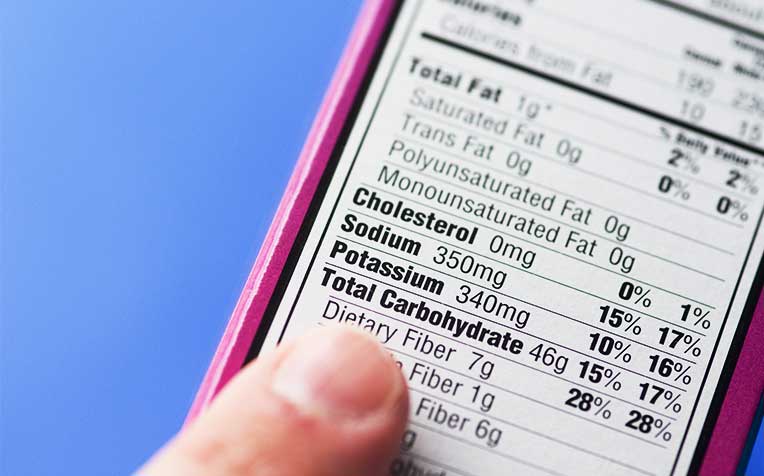
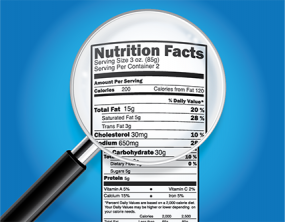
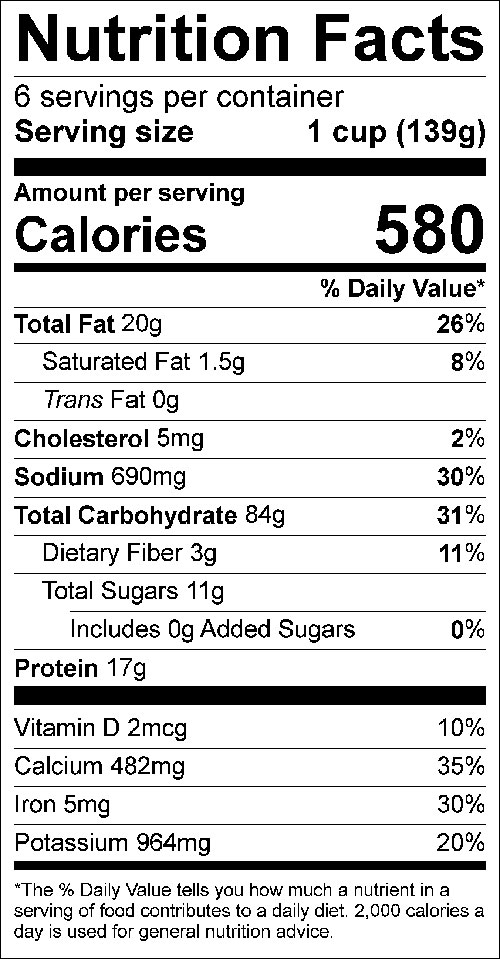
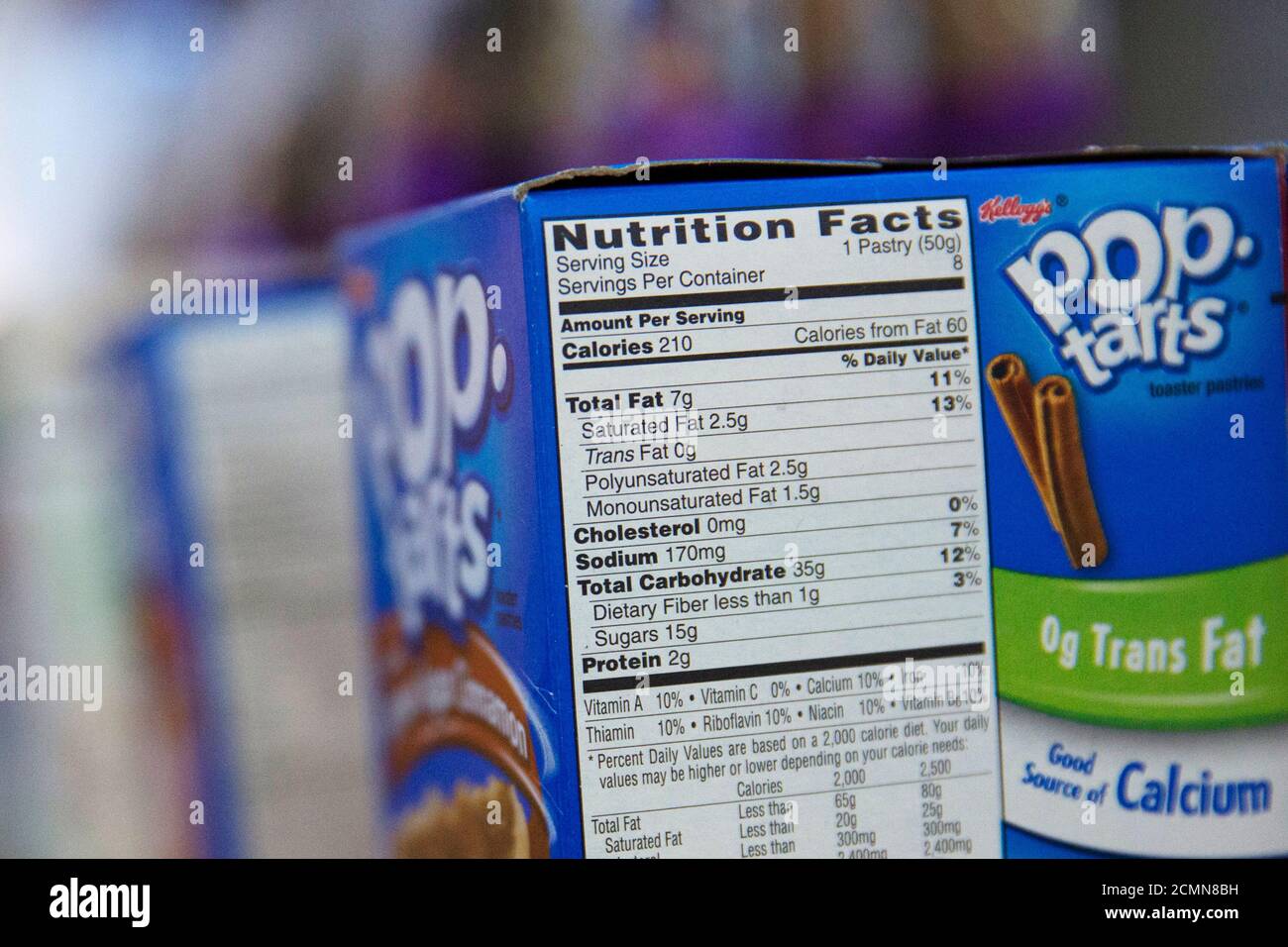
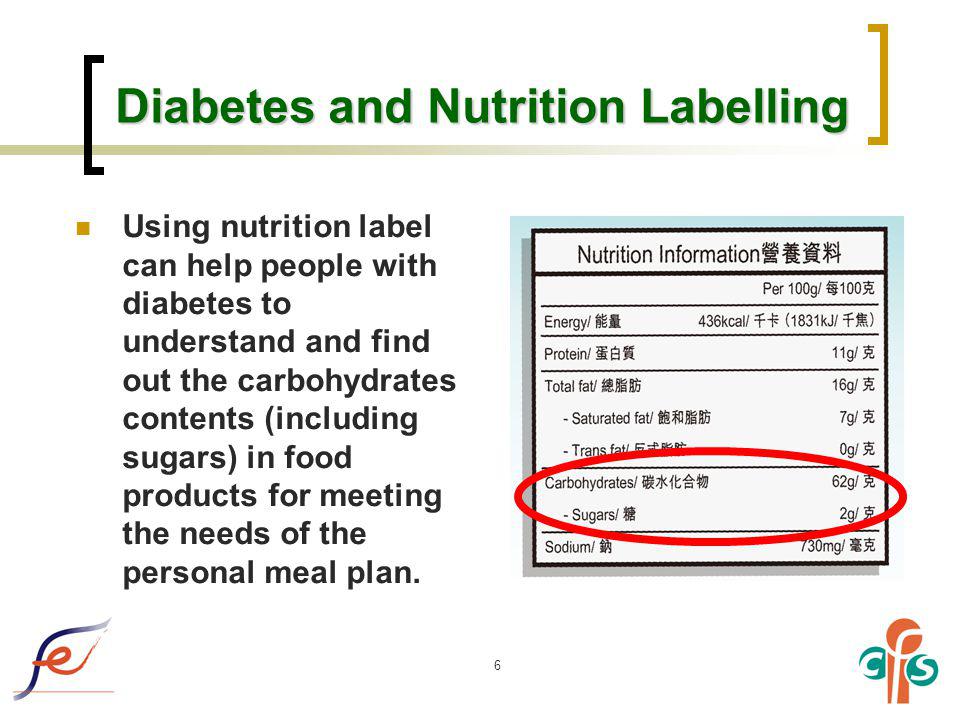


Post a Comment for "45 food labels and diabetes"